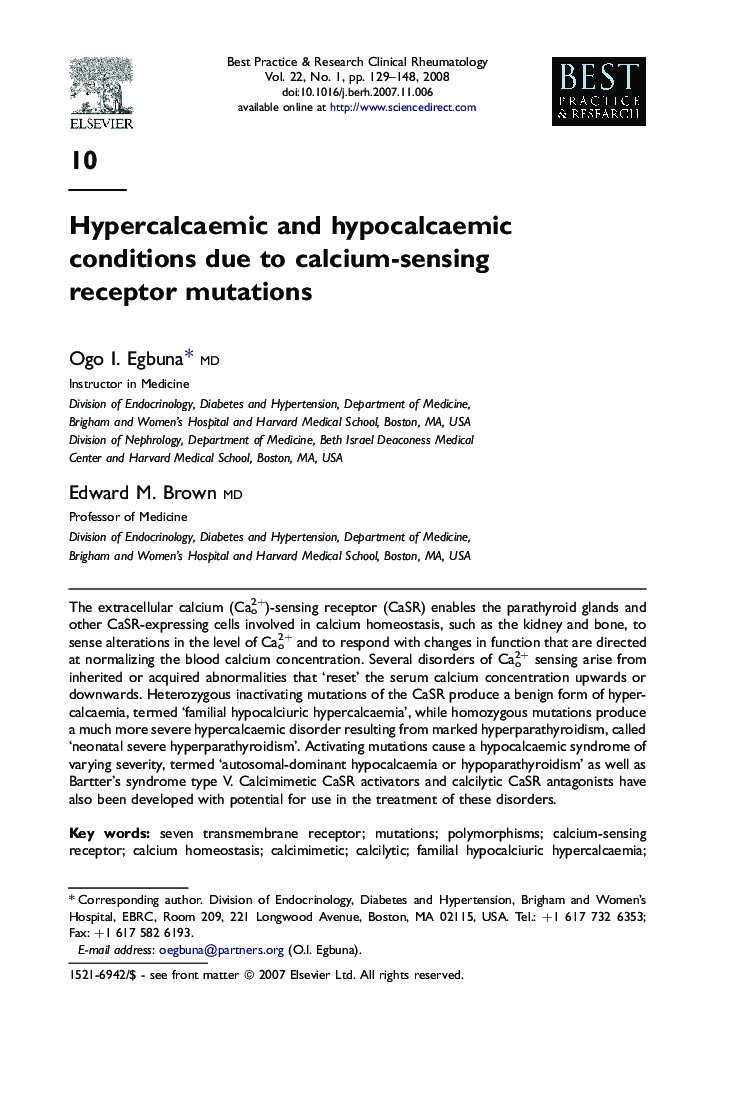| Article ID | Journal | Published Year | Pages | File Type |
|---|---|---|---|---|
| 3343587 | Best Practice & Research Clinical Rheumatology | 2008 | 20 Pages |
The extracellular calcium (Ca2+o)-sensing receptor (CaSR) enables the parathyroid glands and other CaSR-expressing cells involved in calcium homeostasis, such as the kidney and bone, to sense alterations in the level of Ca2+o and to respond with changes in function that are directed at normalizing the blood calcium concentration. Several disorders of Ca2+o sensing arise from inherited or acquired abnormalities that ‘reset’ the serum calcium concentration upwards or downwards. Heterozygous inactivating mutations of the CaSR produce a benign form of hypercalcaemia, termed ‘familial hypocalciuric hypercalcaemia’, while homozygous mutations produce a much more severe hypercalcaemic disorder resulting from marked hyperparathyroidism, called ‘neonatal severe hyperparathyroidism’. Activating mutations cause a hypocalcaemic syndrome of varying severity, termed ‘autosomal-dominant hypocalcaemia or hypoparathyroidism’ as well as Bartter's syndrome type V. Calcimimetic CaSR activators and calcilytic CaSR antagonists have also been developed with potential for use in the treatment of these disorders.
